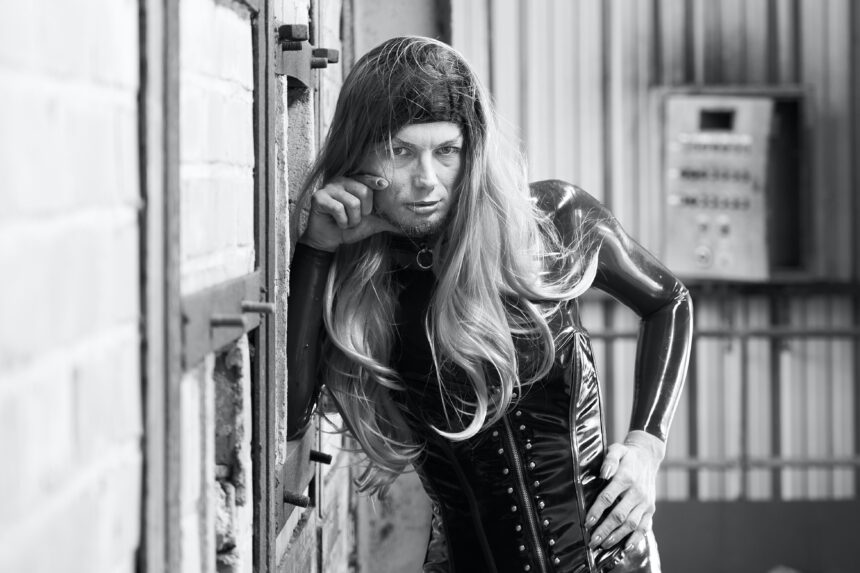Photo by Ingo Doerrie on Unsplash
The concept of ‘realness’ is a term that is for and against gender norms at the same time. According to the film Paris is Burning, ‘realness’ means to be able to blend and “look like your straight counterpart” (18:43). But what is your straight counterpart? How does one fit into the gender norms of their straight counterpart? There is no right or wrong answer to these questions, as everyone perceives gender in different ways. Alongside perceiving gender in different ways depending on the person, gender also changes over place and time.
In order to describe ‘realness’ in the film, they bring up “femme realness queens” such as Venus Extravaganza, who prefers dressing as the stereotypical woman (22:05). Femme realness queens are people (typically assigned male as birth) who dress in a more feminine way to be perceived as a woman in society. They dress like this not only at balls, but on the streets and as sex work. Other categories of realness in the ball world include schoolboy/girl realness and executive realness. In these categories, people would dress as their straight counterpart in an educational or corporate setting.
Butler also discusses feminine gender norms, writing, “precisely because ‘female’ no longer appears to be a stable notion, its meaning is as troubled and unfixed as ‘women,’ and because both terms gain their troubled significations only as relational analysis it suggests” (ix). This quote shows that there is no stable definition for gender, as it changes over time and place (something that Beauvoir has mentioned in her texts).
With this being said, what would Butler say about ‘realness?’ I believe she would be for and against realness, as it breaks and reinforced gender norms. Specifically in the case of femme realness queens, men dress as straight women which goes against men’s gender norms, yet reinforces the binary of there being only two ways to dress, feminine and masculine.
Butler wrote that “gender is a kind of persistent impersonation that passes as the real” (viii). If gender changes over place and time, the impersonation of gender also changes. Something that someone like Venus Extravangza would’ve worn back in the 1980s is different from something a genderqueer person would wear today. This is not only due to fashion changes, but also cultural changes in gender norms.
Before jumping into how I believe society could change so that everyone is free to express themselves, I’d like to leave you with one more quote from Butler, a question as to imitating gender: “Is drag the imitation of gender, or does it dramatize the signifying gestures through which gender itself is established?” (viii). I believe that this is really dependent on the person who is doing drag and what their intentions were with drag and dressing up.
So, how should we change society so that everyone has the freedom to be/express/perform the gender that they choose with safety, respect, and dignity? And what actions should we take to make that society a reality? I don’t believe that society would be able to change this drastically in my lifetime. With people becoming more liberal and open-minded to gender nonconforming people, there are also people who are becoming more conservative and violent against gender nonconforming people.
With that being said, I believe that the first step is to educate young children about the LGBTQIA+ community in schools. Teachers and librarians need to read banned and challenged books because they allow these young impressionable minds to have empathy for queer people, even if their parents are telling them otherwise at home. Places like Florida are a really toxic environment and need to be stopped on a federal level because they are currently isolating themselves from the rest of the United States, making it very hard for them to educate themselves on respect and justice.
Venus Extravaganza mentioned that they “didn’t want to embarrass them [their parents], so that’s when I [Venus] moved away” (23:14). This idea of being an embarrassment to your family is a well-known feeling within the queer community, and is one that needs to be stopped. With education and acceptance, everyone should have the freedom to be themselves and to express/perform gender in any way that they choose without fear of being harassed or even killed.
My grandfather is one of those polarized far right-wing people who will just never understand the LGBTQIA+ community because he is so cooped up in conspiracy theories and Fox News’ biased storylines. This being said, what might be able to help people in older generations are free mandatory media literacy classes in order to be allowed on social networking sites, and especially in order to vote. These people did not grow up in the age of the internet and never received formal education on how the internet works like how we were given classes and presentations in elementary, middle, and even high school. So media literacy classes would greatly help them understand the internet and how polarizing specific sites, news outlets, and people can be.
Overall, while I believe that this change cannot physically happen in my lifetime, I do fully believe that putting in the education and empathy training for younger audiences will help to create less polarized views on the next generation of children, as they become adults and have responsibilities such as voting. And I fully believe that free mandatory media literacy classes for older generations would do the same, creating a less polarized and more empathetic society.


Leave a Reply